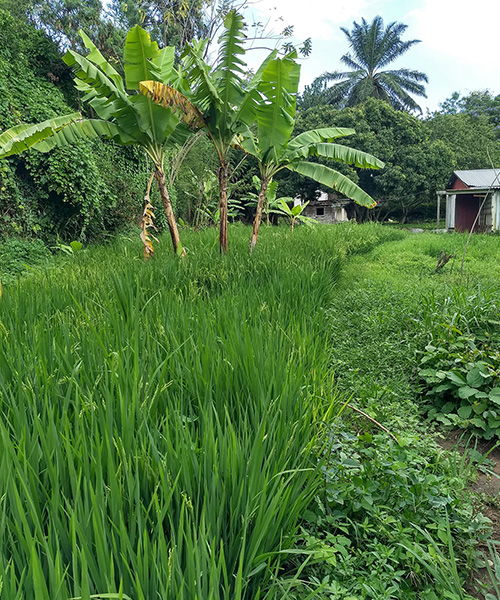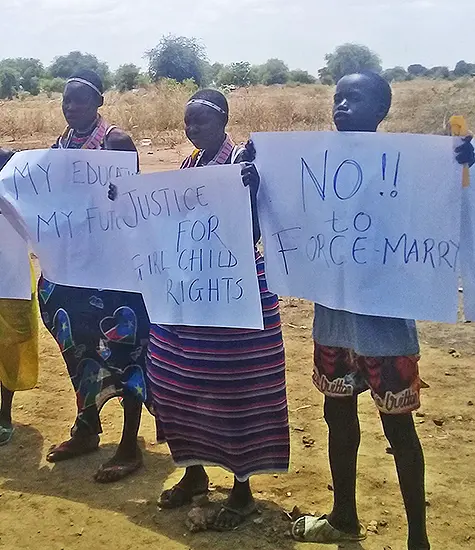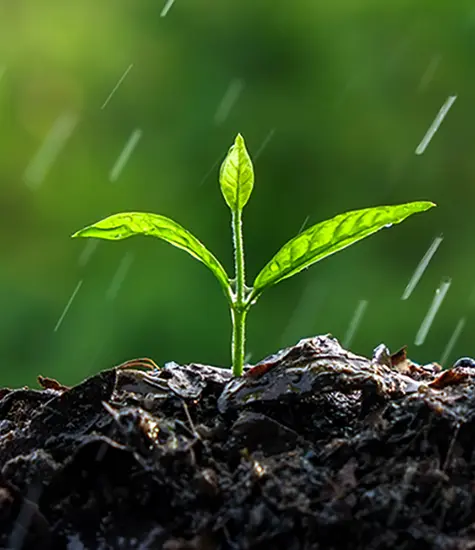Summer 2021 newsletter
Steve and Loyce Veryser, Tanzania

Our rice paddy in Mwanza
With the seasons changing, new beginnings are in the air. In Tanzania the rainy season just ended, and we harvested some rice we had planted in our yard around November last year.
There are plenty of travails with farming, and rice is one of the more intensive crops to grow. It involved digging patties, finding good seed, praying for rain (we got plenty), pulling weeds (plenty of these too), keeping birds away, cutting the stems to harvest, threshing (hitting the stalks with a big stick), and finally hulling at a machine nearby.
We got a few sacks in the end, but you never know how it will turn out until you run the rough, or paddy, through a milling machine to remove the tan hulls covering the white grains. Our rice mostly came out in little pieces — as the guy at the machine said, “inakatika,” literally “it breaks.” These broken grains are just fine for food, though not much good for selling, and I guess we’ll be eating small grain rice for a while!
It occurred to me that I started to learn Tanzanian sign language (Lugha ya Alama Tanzania, or LAT) around the time that we planted rice last year, and now I’m also finally starting to “reap fruits of my labor” from the lessons in signing. A couple of times I’ve run into one of the members of the deaf community in town or at the market and people around have been surprised to see us communicating! Sometimes people make derisive comments, though, and I’m starting to realize how much prejudice deaf people face from folks that are hearing.
Recently I visited the school where I first taught in Mwanza in the Peace Corps and found that they now have 120 students with disabilities, including 90 students who are unable to hear. Some students that complete primary school at St. Justin’s Centre for Children with Disabilities in Musoma (read my earlier story about it here) continue with secondary at this school, which is close to where we live in Mwanza.
They have a number of teachers who can sign but no math and physics teachers who do. When they found out I used to teach those subjects, they asked me to help tutor the classes, explaining concepts with signing, since deaf students often don’t understand spoken explanations in regular class. My LAT teacher, Amani, is starting to focus on signs that are related to math and physics in lessons now, so I will know these when I start to teach in July. Even if my signing is “broken,” hopefully, like our harvested rice, it can still be useful…
Many of the deaf students haven’t had special training in primary school so are also learning to sign as they start secondary. Culturally there’s shame associated with disability, and some have even been hidden by their families from neighbors and have had little interaction with anyone outside their homes before starting secondary school.
Certainly in villages, where most come from, there are little to no accommodations for people with disabilities, and most of the students with special needs come from families that get by on subsistence agriculture. Where growing some rice was a little side project for us, for their families farming rice, or other crops, is a career and source of livelihood. They struggle to get by and are really unable to provide the extra support that students with disabilities need.
When I met with the students and their teachers, they explained that it would be really helpful for them to have access to textbooks, these are usually scarce anyways, as well as teaching aids like videos with explanations in signing, or subtitles, so they could better follow lessons. Hearing aids may be effective for some and many haven’t seen a doctor to be diagnosed formally.
If you’re interested in helping provide resources for the students I’ll be working with, please donate to our ministry by clicking the donate button below.










Thank you for this very thoughtful and illuminating reflection.